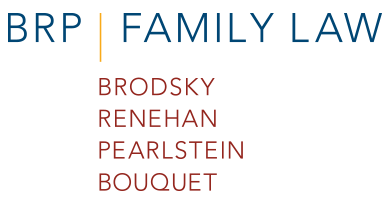In Maryland and the District of Columbia, courts must determine what is in a child’s best interest to make a custody determination. This is a difficult process for the court, and is fraught with gray areas and ambiguities. Thus, the court may order a custody evaluation to assist in its decision making.
What is a custody evaluation and who conducts it?
A custody evaluation is completed by a child custody evaluator, who will attempt to determine the child’s best interest as it relates to legal and physical custody. Most of the time, the evaluator will be a psychiatrist, psychologist, or a social worker. The evaluator may speak to the parties, child, and third parties with whom the child associates such as teachers, doctors, and other friends and relatives. He or she may also review documents such as school records, medical records, emails between the parties, and other documents relating to the child. In certain cases, the evaluator may conduct psychological testing. Lastly, the evaluator will likely conduct a home visit and may want to meet with the parties more than once. After the investigation is complete, the evaluator will prepare a report for the court containing a parenting plan with recommendations on physical custody and visitation, a recommendation on legal custody, and the reasoning behind the recommendations.
What should I do if I am involved in a custody evaluation?
Your interactions with the custody evaluator and the impression you make upon him or her as a parent will affect the report and recommendations made by the evaluator. Be prepared for the home visit. Your home does not have to be perfect, but it should be neat and orderly. In an ideal situation, your child will have his or her own room with a bed, toys and all the other items typically associated with a child’s room. If anyone lives with you, he or she should be prepared to speak with the evaluator. You should be cooperative, and open minded: show a willingness to consider custody options other than just your own plan. Acknowledge that you and the other parent both have strengths and weaknesses when it comes to parenting your child, and keep the focus on your child, not your relationship with the other parent. At the end of your meeting, propose the parenting plan you think is in your child’s best interests, and explain why you believe that. A good attorney will help you prepare for meetings with the evaluator.
How should I explain the evaluation process to my child?
Your child is likely confused and overwhelmed with the situation. There is no getting around the fact that the evaluator is there because you and the other parent are not seeing eye to eye anymore, but your child should know that the situation is not his or her fault and should not feel pressured to favor one parent or the other. Do not coach your child about what to say to the evaluator, and encourage honesty. Explain to your child that the evaluator is there to get to know the family, and to help find a solution. Remember, this process is about the best interests of your child.
Although a custody evaluation is only one part of a custody case, it can be the most important and/or most significant piece of evidence the court will consider. Our attorneys can assist you in preparing to meet with your custody evaluator and in managing your case to help you work toward your custody goals.







